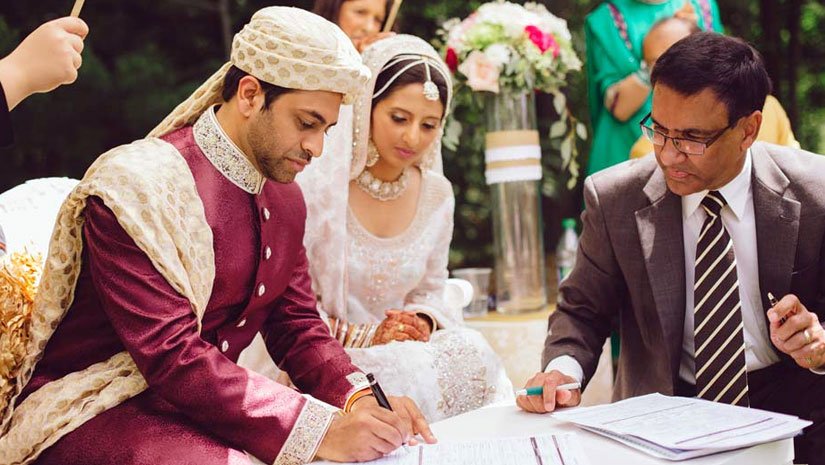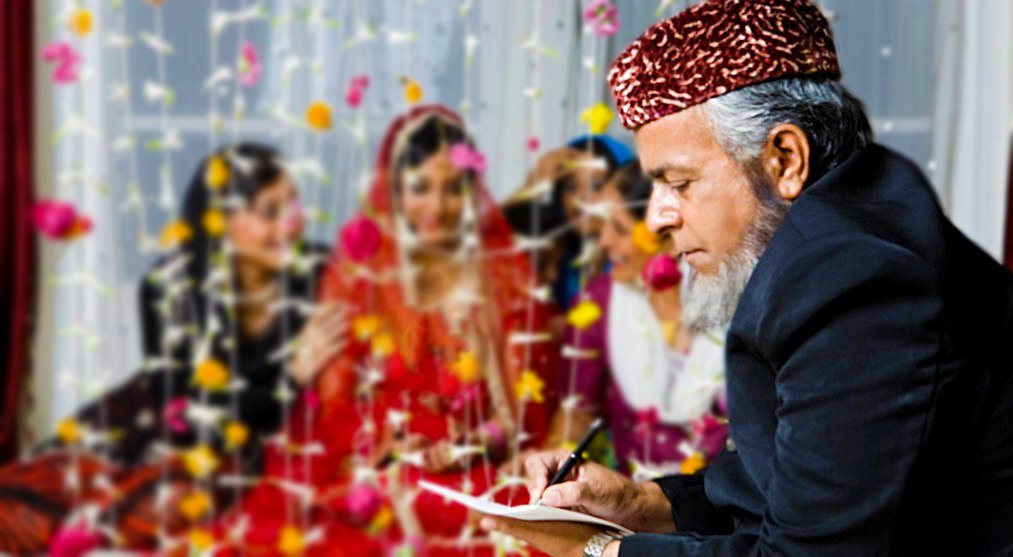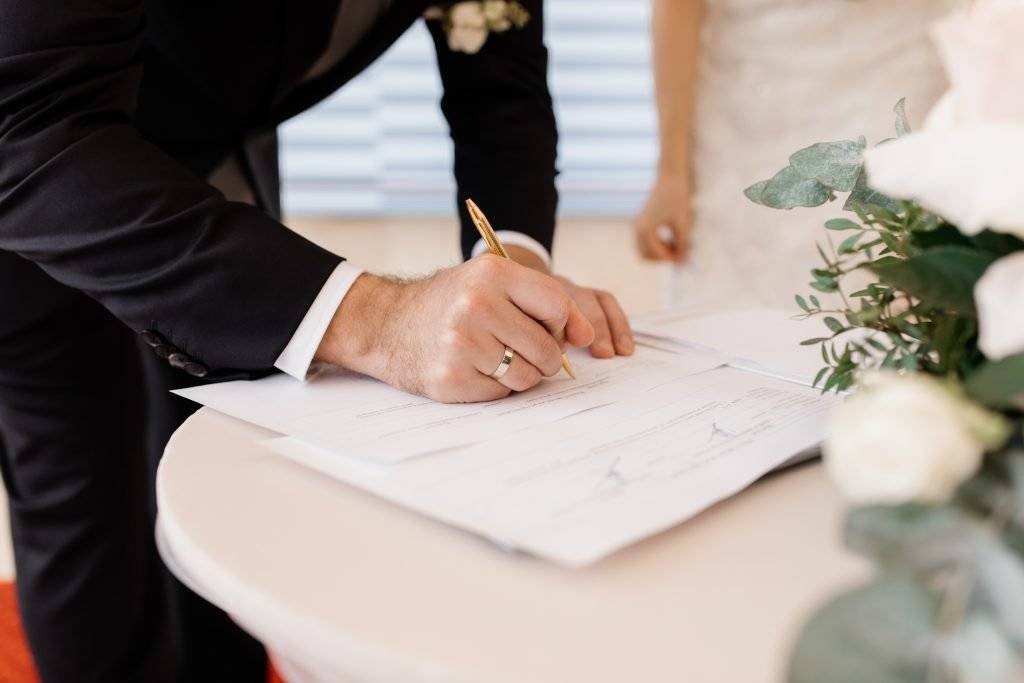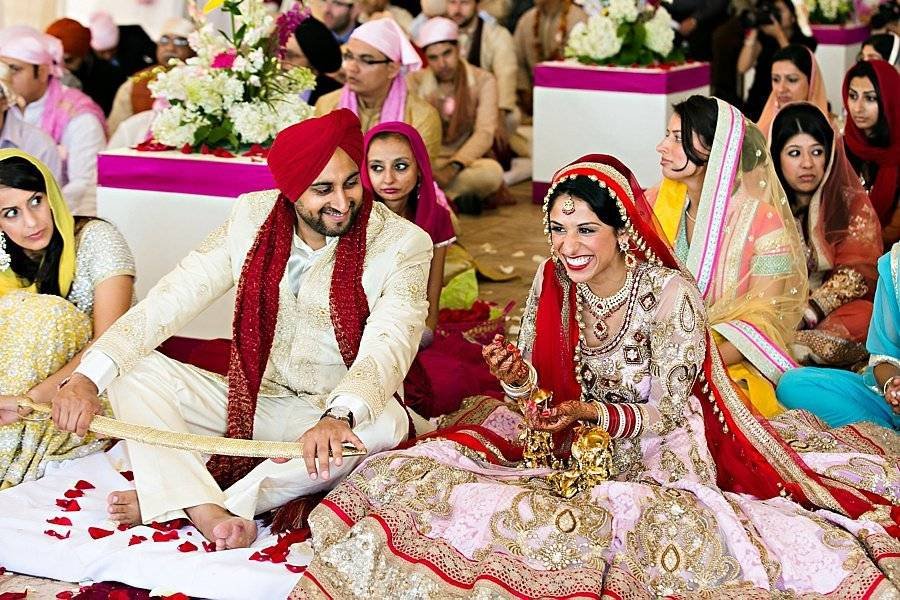How to Register Nikah in UK
If you are looking How to Register Nikah in UK below are some best information. Navigating the legal process of registering your nikah in the UK can be a significant step towards cementing your marriage. From understanding the necessary documentation to choosing authorized venues and officiants, our guide provides clear insights into every aspect of this process. At right law Associates, we not only offer valuable information but also provide Nikah Registration Certificates, ensuring your union is legally recognized. With our assistance, you can embark on your marital journey with confidence, knowing that your nikah is not only spiritually blessed but also officially acknowledged by the law in the United Kingdom.

A Spiritual and Legal Union: How to Register a Marriage in the UK
Beginning the sacred journey of marriage is a symbol of a deeply spiritual and legal union. In the context of the way marriage is registered in the UK, this bond goes beyond faith to include legal recognition. The combination of spiritual commitment and legal obligations ensures that your marriage journey is not only blessed in the eyes of Allah but also complies with UK laws. This unique fusion encapsulates the essence of your marriage, making it an important and blessed occasion that holds significance in your heart and within the legal framework of the country.
The Essence of Nikah: Uniting Hearts in the Eyes of Allah
Marriage has a deep essence of connecting hearts in the eyes of Allah. It is important to understand this essence when considering the procedure for registering a marriage in the UK. It goes beyond mere legal process. It is a spiritual union where two souls come together under divine blessings. Through the process of registering a marriage in the UK, this sacred union is strengthened, harmonizing their commitment to each other with their faith in the wisdom and guidance of Allah. It is an embodiment of love and devotion, including both spiritual and legal aspects that make up this beautiful journey.
The Legal Aspect: How to Register Nikah in the UK
When considering how to register a marriage in UK, it is important to understand the legal aspect. The process of registering a marriage in the UK involves adhering to the country’s legal requirements while maintaining the sanctity of the religious ceremony. This legal dimension ensures that your marriage is not only a spiritual commitment but also a recognized and binding contract in the eyes of the law. By following the procedures for registering a marriage in the UK, you ensure that your union is personally meaningful and formally recognized within the country’s legal framework.

Documentation Essentials: Ensuring a Smooth Registration Process
As you delve into how to register nikah in the UK, understanding the documentation essentials is paramount. These documents, required to register nikah in the UK, serve as the foundation of the legal process. From proof of identity to completing necessary forms, these documentation essentials ensure a smooth registration process. By meticulously preparing and submitting the required documents in accordance with how to register nikah in the UK, you pave the way for a hassle-free and legally recognized marriage, uniting your spiritual commitment with the country’s legal requirements.
Choosing an Authorized Venue: Where to Conduct Your Nikahs
Selecting an authorized venue is a pivotal decision within the context of how to register nikah in the UK. The venue you choose to conduct your nikah holds significance both spiritually and legally. By opting for a registered place of worship or a recognized venue, you ensure that your nikah aligns with the guidelines of how to register nikah in the UK. This choice contributes to the seamless integration of your sacred ceremony and the legal recognition process. As you explore where to conduct your nikah, consider venues that resonate with your faith and comply with the regulations outlined in how to register nikah in the UK.
Qualified Officiants: Who Can Conduct Your Nikah
Understanding who can officiate your nikah is a crucial aspect of comprehending how to register Nikah in the UK. Qualified officiants, often designated by religious organizations, play a vital role in ensuring the legitimacy of your marriage. As you embark on the journey of how to register Nikah in the UK, it’s essential to choose an authorized individual who meets the criteria outlined in the guidelines. Their role extends beyond the ceremonial to the legal, underscoring the importance of aligning your spiritual commitment with the legal requirements defined in how to register Nikah in the UK.

Formalizing Your Nikah In UK
The marriage schedule is a pivotal document in the process of how to register nikah in the UK. It serves as the tangible link between your sacred union and the legal recognition of your marriage. As part of the formal steps outlined in how to register nikah in the UK, completing the marriage schedule during your nikah ceremony is crucial. This document captures the essence of your commitment and, when submitted as per the guidelines of how to register nikah in the UK, cements your marriage’s legality while preserving its spiritual significance.

Post-Nikah Formalities: Registering Your Marriage In UK
After the heartfelt nikah ceremony, the journey of how to register nikah in the UK continues with essential post-nikah formalities. These steps involve submitting the marriage schedule to the relevant authorities, a key requirement in how to register nikah in the UK. This crucial document ensures the legal recognition of your marriage, aligning your spiritual commitment with the legal framework. By diligently adhering to the guidelines of registering nikah in the UK, you solidify your marital bond within both the realm of faith and the legal scope of the United Kingdom.
Dual Ceremony Considerations: Civil and Religious Nikah In UK
Navigating the dual ceremony of civil and religious nikah holds significance within the context of how to register nikah in the UK. Balancing the spiritual sanctity of the religious nikah with the legal aspects of the civil ceremony is paramount. Understanding how to register nikah in the UK involves coordinating these two ceremonies, ensuring they both adhere to the guidelines and requirements. By embracing these dual ceremony considerations outlined in how to register nikah in the UK, couples can authentically merge their faith-based commitment with the legal obligations, creating a harmonious and legally recognized marital union.
Celebrating Your Union: The Joy of a Legally Recognized Nikah In UK
The culmination of the process of how to register nikah in the UK brings forth a moment of celebration. As your nikah becomes legally recognized, the joy is twofold—spiritual and legal. The steps you’ve followed according to how to register nikah in the UK ensure that your union is not only blessed in the eyes of Allah but also acknowledged by the law. This recognition paves the way for celebrating your union with the assurance that it holds significance both personally and officially. Through the journey of how to register nikah in the UK, you’ve forged a bond that bridges faith and legality, resulting in a celebration that resonates deeply within your hearts and is honored by the country’s legal system.

Growing Together: Life After Registering Your Nikah In UK
Life after successfully registering your nikah in the UK is a continuation of the beautiful journey you embarked upon through how to register your Nikah in the UK. Your marriage, now legally recognized, lays the foundation for a life of shared experiences, growth, and unity. As you navigate the path ahead, the steps you took in learning how to register nikah in the UK remind you of the commitment you made, both in the eyes of Allah and within the legal framework of the country. Through challenges and triumphs, you’ll find solace in the knowledge that your union is rooted in faith and upheld by the law, embodying the essence of how to register nikah in the UK. This harmonious blend of spirituality and legality will guide you through the journey of growing together in the United Kingdom, united by the love that sparked through the guidance of how to register nikah in the UK.
